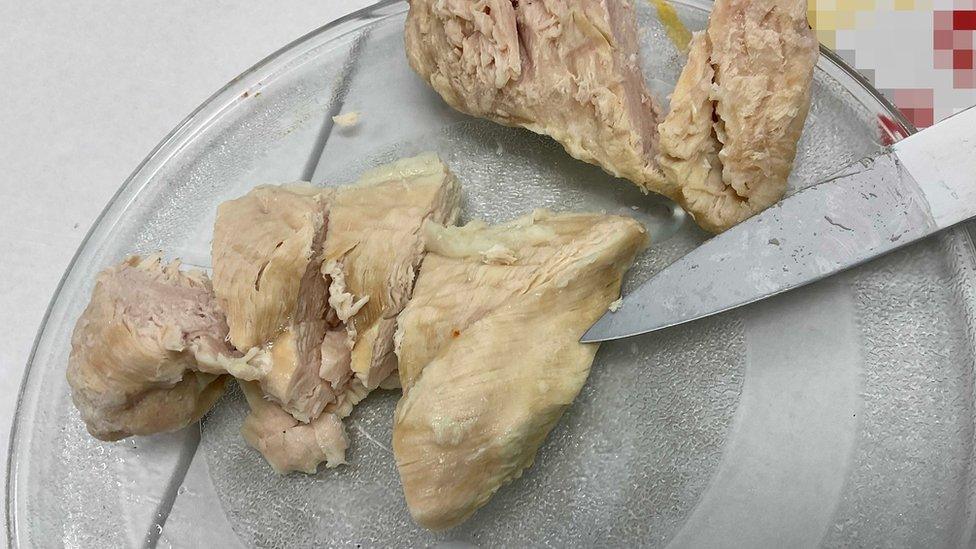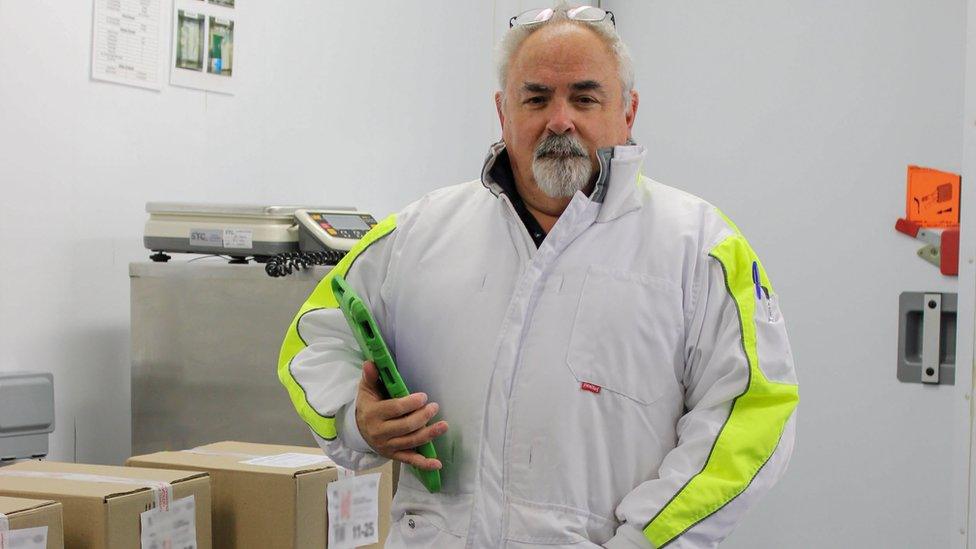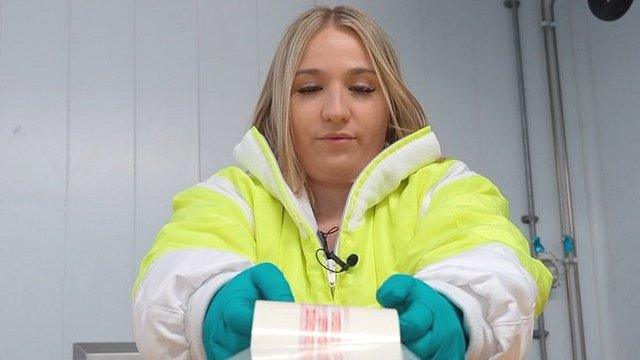Felixstowe Port: Dangerous bacteria found in cooked chicken
- Published

Inspectors said the cooked meat will now be destroyed
A potentially deadly bacteria has been found in 22-tonnes of cooked chicken stopped at the Port of Felixstowe.
Suffolk Coastal Port Health Authority (SCPHA) said the Salmonella subspecies called Mbandaka was responsible for infectious outbreaks across the world.
The SCPHA said "suspicions were aroused" when it found salmonella in a previous import of chicken from the same factory during routine checks.
The 22-tonnes of cooked chicken will now be destroyed.
Jose Arruga, official veterinary surgeon at SCPHA who discovered the salmonella said: "Unlike raw chicken, all pre-cooked chicken must be completely devoid of salmonella according to UK legislation, as consumers are not expected to cook it as thoroughly.
"The cause could be something as simple as contaminated equipment at the factory or a wider issue."

Jose Arruga said Salmonella Mbandaka may only cause fever, vomiting and diarrhoea for a few days in the majority of people
Salmonella bacteria typically live in animal and human intestines, external and are shed through faeces. Humans become infected most frequently through contaminated water or food.
According to the European Centre for Disease Prevention and Control, 196 Salmonella Mbandaka infections, external were reported across the UK, Ireland, France, Germany, Netherlands, Finland, Estonia, Czechia and Israel in November.
Of the confirmed cases, 19 people required hospital treatment and one person in the UK died.
The centre said that based on case interviews from Finland and the UK, ready-to-eat chicken products and/or fresh chicken meat such as those used in sandwiches and wraps are the "likely vehicles of infection".
Mr Arruga said: "Salmonella Mbandaka may only cause fever, vomiting and diarrhoea for a few days in the majority of people. However, it has potential to result in serious harm for the elderly and vulnerable.
"As per guidance from the Food Standards Agency, up to 30 imports of this product from the location in question must be clear of any contamination before we can resume routine checks."

Follow East of England news on Facebook, external, Instagram, external and Twitter, external. Got a story? Email eastofenglandnews@bbc.co.uk, external or WhatsApp us on 0800 169 1830
Related topics
- Published5 June 2023

- Published14 June 2023
